Clicca qui per scaricare il poster in formato PDF
English version below
BLQ Checkpoint: caratteristiche degli utenti nei primi 30 mesi di attività
autori: Mattioli S1, Bonanni M1, Degli Esposti C1, Franchini C1, Gorgoni P1, Pieralli P1, Tomasi P1, Corbelli GM1
1Plus onlus
Background: il 15 settembre 2015, il BLQ Checkpoint ha iniziato la sua attività a Bologna. È il primo centro italiano community-based che offre test per l’HIV e l’HCV al di fuori del contesto sanitario. Il BLQ Checkpoint è stato aperto da Plus onlus, la rete italiana di persone LGBT che vivono con l’HIV, grazie alla collaborazione con il comune di Bologna e le autorità sanitarie locali. È aperto due giorni alla settimana, il martedì e il giovedì, dalle 18:00 alle 21:00, grazie all’attività dei volontari di Plus. Presentiamo i dati dei suoi primi 30 mesi di attività (15 settembre 2015 – 15 marzo 2018). Da febbraio 2016, i test presso il BLQ Checkpoint vengono effettuati su prenotazione, tramite telefono o e-mail.
Risultati: Durante i suoi primi 30 mesi di attività, il BLQ Checkpoint è stato aperto per 245 giorni, incluse alcune attività straordinarie, come la settimana europea per i test sull’HIV e l’epatite, il San Valentino Testing Day, l’AIDS Day il 1 ° dicembre. È chiuso per le ferie in agosto. Nel complesso, è stato aperto per oltre 750 ore e sono stati eseguiti 2.554 test HIV e 1340 test HCV.
In 30 mesi, 2.239 utenti singoli hanno effettuato l’accesso al Checkpoint e in questo periodo sono state effettuate 249 visite con utenti ricorrenti. Sono stati registrati un totale di 2.488 accessi (di media 3,24 accessi per ora di apertura o 10 accessi al giorno).
Dei 2239 utenti, il 75,6% era di sesso maschile, il 24,3% di sesso femminile, 3 transgender. La fascia d’età più rappresentata era 26-35 (43,7%), seguita da 18-25 (22,2%) e 36-45 (19,4%); Il 13,7% degli utenti aveva più di 46 anni con 3 utenti di età superiore ai 66 anni. La percentuale di utenti più giovani è in aumento, dal 19,1% di utenti tra 18 e 25 anni tra settembre 2015 e luglio 2016, al 20,1% tra settembre 2016 e luglio 2017 e 29,7% tra settembre 2017 e marzo 2018. I maschi che hanno rapporti sessuali con maschi (MSM) rappresentano il 57,3% degli utenti, mentre il 40,0% sono eterosessuali e il 2,5% donne che hanno rapporti sessuali con donne (FSF).
Dei 2.554 test HIV effettuati, 11 hanno dato un risultato reattivo. Tutti gli utenti con risultati reattivi erano MSM. Tutti sono stati confermati dal test ELISA presso l’ospedale e sono stati agganciati alle cure.
Conclusioni: il BLQ Checkpoint è stato accolto molto bene dagli utenti: quasi tutti hanno accolto favorevolmente l’iniziativa e l’hanno considerata uno strumento importante per migliorare l’accesso ai test dell’HIV e dell’HCV. I passi futuri includono la ricerca di un modo per tenerlo aperto più giorni alla settimana e l’implementazione di strategie per concentrarsi in modo più efficiente sui sottogruppi della comunità gay a più alto rischio di HIV ed epatite.
English version
BLQ Checkpoint: characteristics of users in the first 30 months of activity
authors: Mattioli S1, Bonanni M1, Degli Esposti C1, Franchini C1, Gorgoni P1, Pieralli P1, Tomasi P1, Corbelli GM1
1Plus onlus
Background: On 15 September 2015, the BLQ Checkpoint started its activity in Bologna. It is the first Italian community-based centre offering HIV and HCV test outside the clinical setting. The BLQ Checkpoint was opened by Plus onlus, Italian network of LGBT people living with HIV, thanks to a collaboration with the municipality of Bologna and the local health authorities. It is open two days per week, Tuesdays and Thursdays, from 6 PM to 9 PM, thanks to the activity of Plus’ volunteers. We present data from its first 30 months of activity (15 September 2015 – 15 March 2018). Since February 2016, tests at the BLQ Checkpoint are done upon reservation, via phone or email.
Results: During its first 30 months of activity, the BLQ Checkpoint was open for 245 days, including some extraordinary activities, such as the European HIV and hepatitis Testing Week, the San Valentino Testing Day, the AIDS Day on 1stDecember. It closed for season holidays in August. Overall, it was open for more than 750 hours and 2,554 HIV tests and 1340 HCV tests were performed.
In 30 months, 2,239 single users accessed the Checkpoint and 249 visits with repeating users were performed in this period. A total number of 2,488 accesses were registered (median 3.24 accesses per opening hour or 10 access per day).
Of the 2,239 users, 75.6% were male, 24.3% female, 3 transgender. The most represented age group was 26-35 (43.7%), followed by 18-25 (22.2%), and 36-45 (19.4%); 13.7% of the users were older than 46 with 3 users older than 66. The proportion of younger users is increasing, from 19.1% of users aged 18-25 from Sept. 2015 to July 2016, to 20.1% from Sept. 2016 to July 2017 and 29,7% from Sept 2017 to March 2018. Men who have sex with men (MSM) represent 57.3% of the users, while 40.0% were heterosexual and 2.5% female who have sex with female (FSF).
Out of the 2,554 HIV tests performed, 11 gave a reactive result. All users with reactive results were MSM. All were confirmed by test ELISA at the hospital and were linked to care.
Conclusions: The BLQ Checkpoint was very well received by the users: almost all of them welcomed the initiative and considered it as an important tool to improve access to HIV and HCV testing. Future steps include finding a way to keep it open more days per week and implementing strategies to focus more efficiently on the sub-groups of the gay community at higher risk for HIV and hepatitis.
Ricerca presentata alla conferenza ICAR 2018




